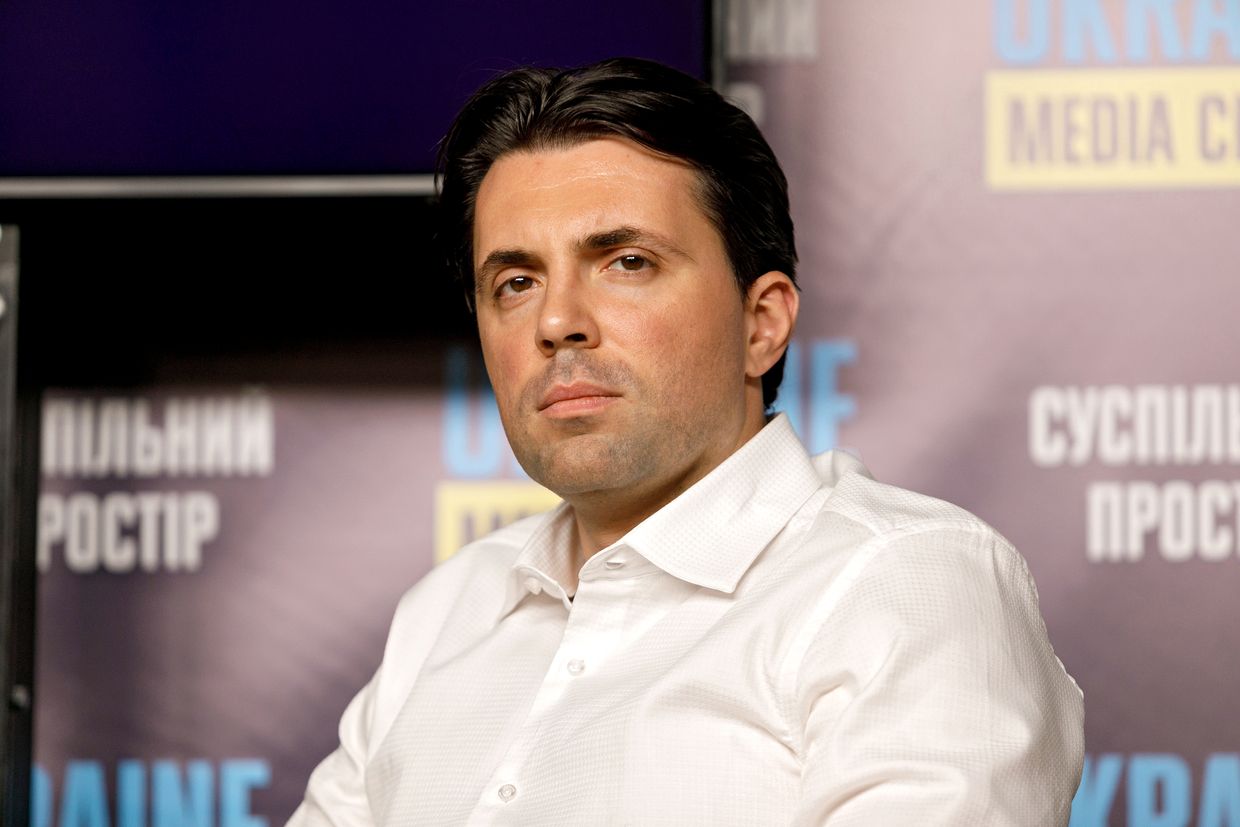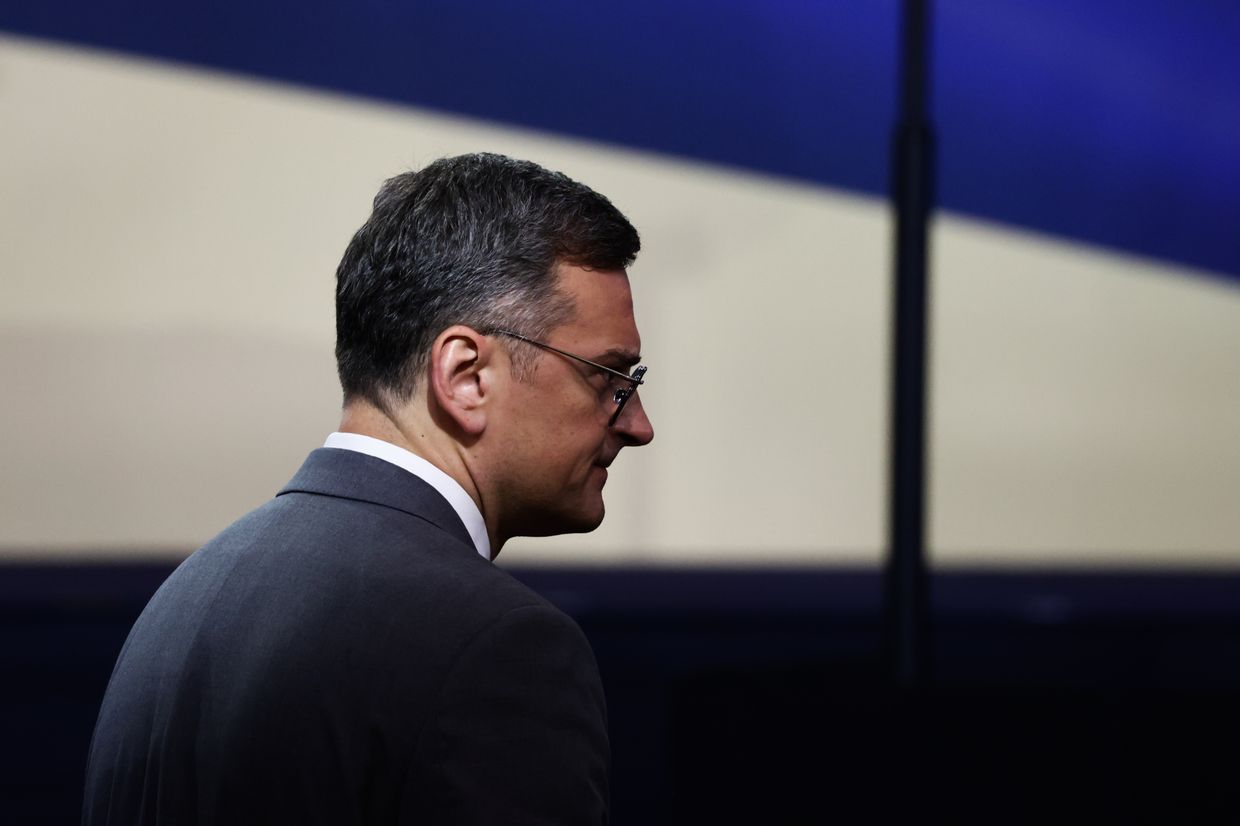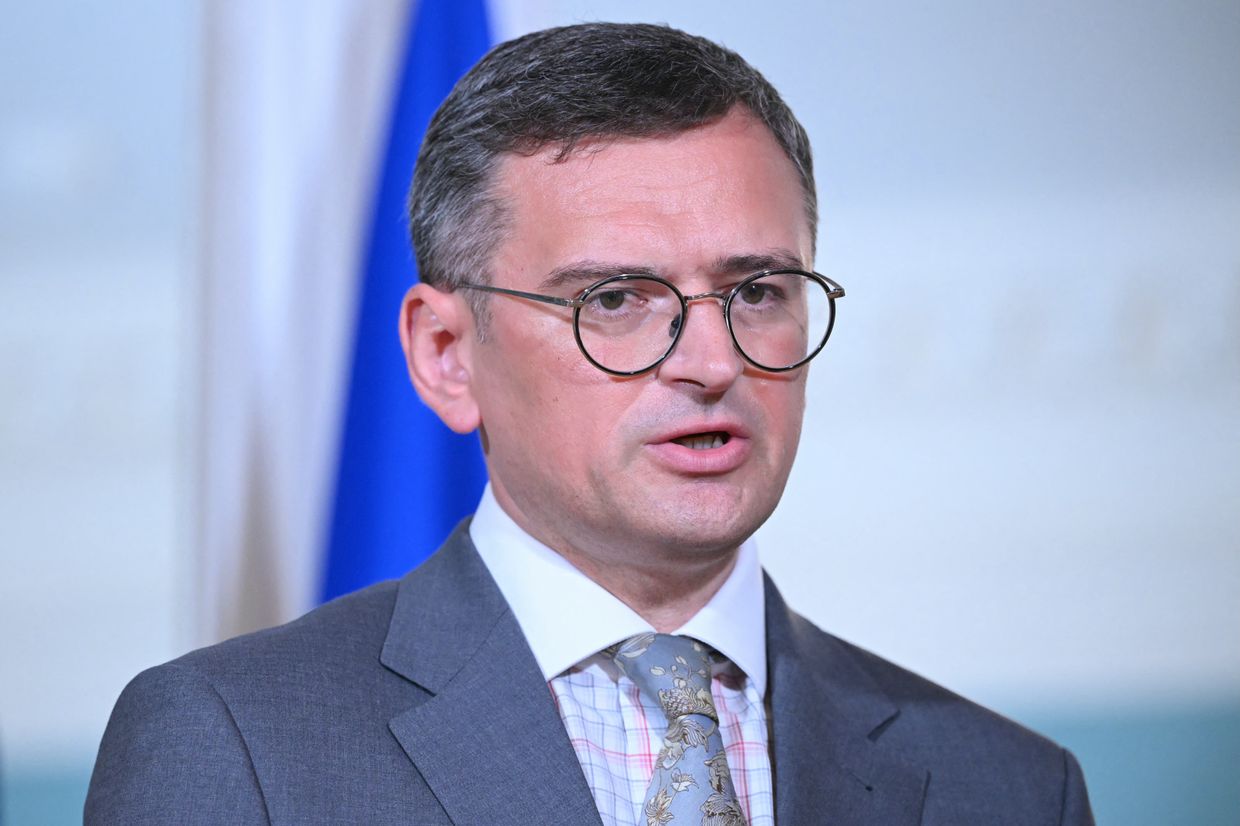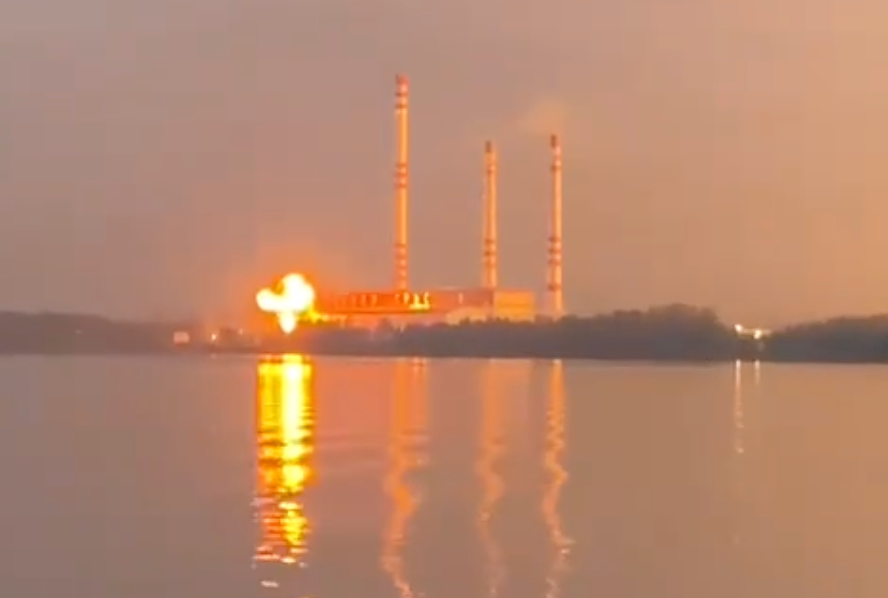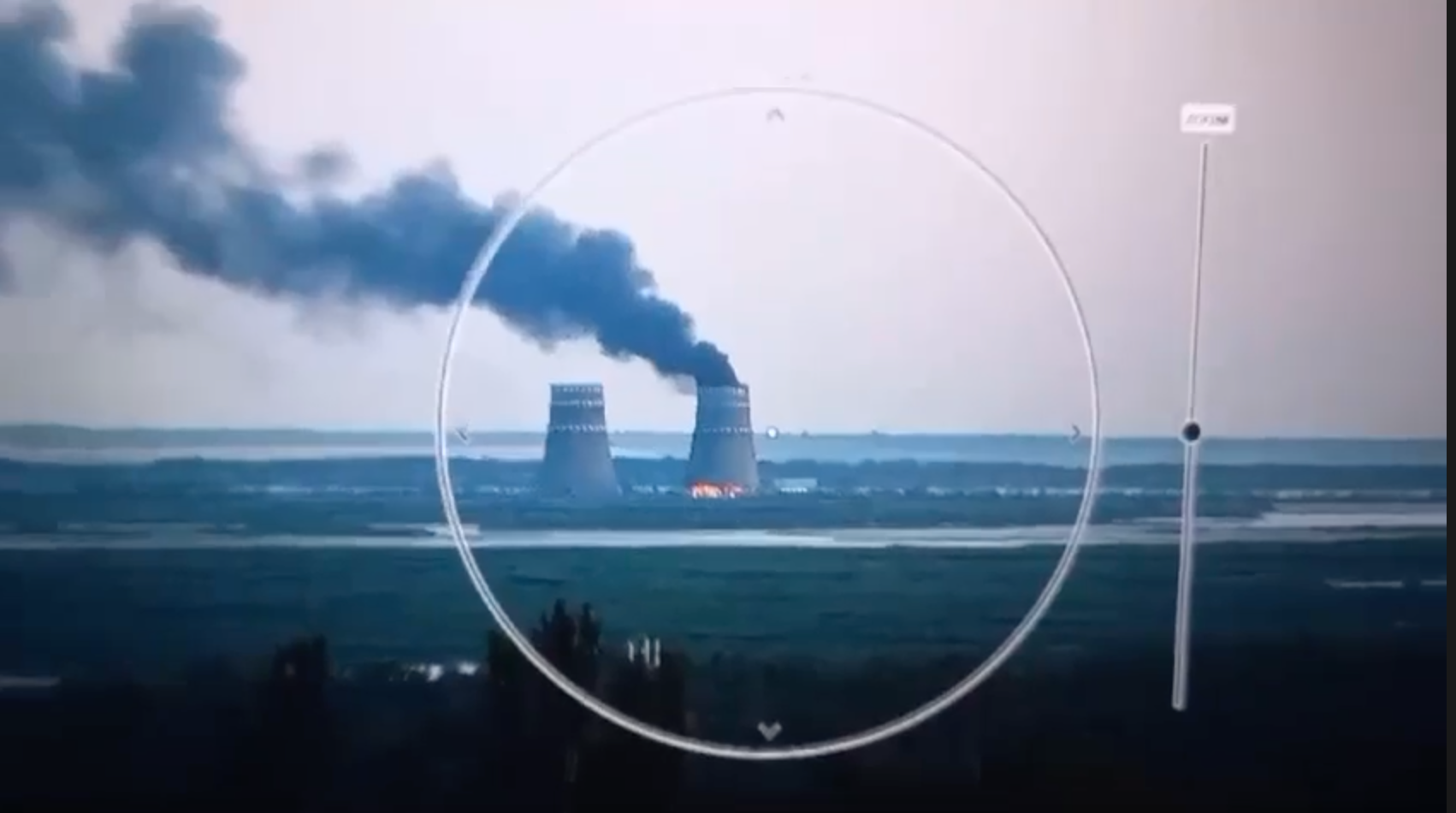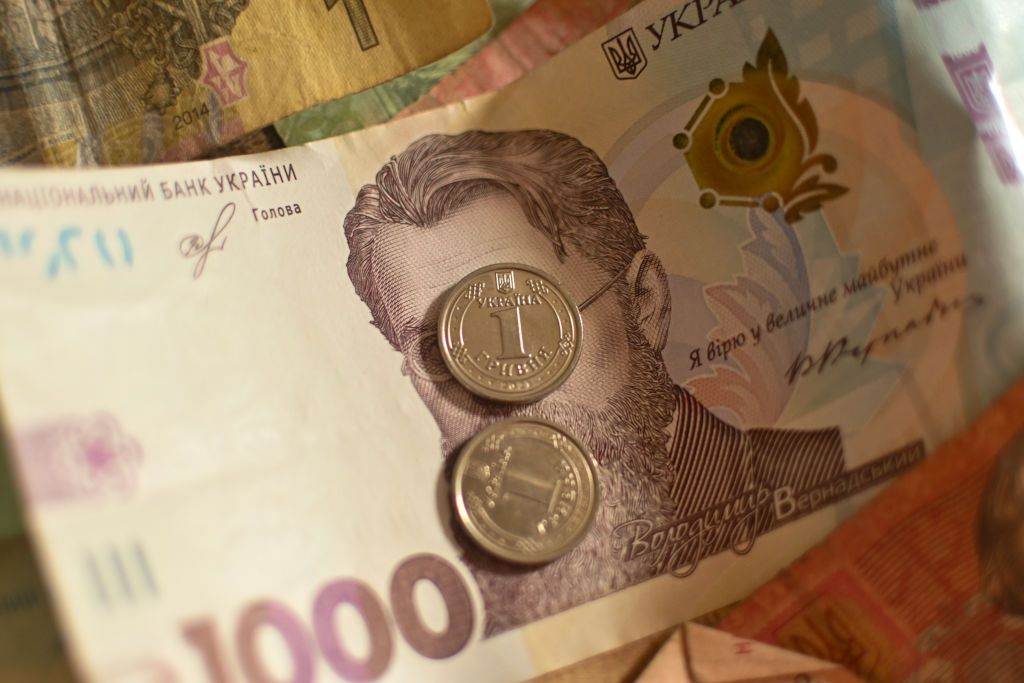Ukraine state-owned enterprises weekly — Issue 145

Editor’s Note: This is issue 145 of Ukrainian State-Owned Enterprises Weekly, covering events from Aug. 25-31, 2024. The Kyiv Independent is reposting it with permission.
This newsletter was originally published before the news that state energy grid operator CEO Volodymyr Kudrytskyi was dismissed on Sept. 3 amid a wide-scale government reshuffle.
Corporate governance of SOEs
Ukrenergo’s CEO Volodymyr Kudrytskyi may be dismissed, supervisory board put to test. Numerous reputable media – including Ekonomichna Pravda (EP), Interfax-Ukraine, and Forbes Ukraine – have reported this news, citing multiple sources in government.
According to EP’s sources at the Cabinet of Ministers and one of the energy companies, the liquidation of the consequences of the latest Russian attack and protection of energy infrastructure was one of the topics during the meeting of the Supreme Commander-in-Chief’s Staff on Aug. 30.
“Kudrytskyi (was) accused of improper implementation of the staff’s previous decisions and poor protection of Ukrenergo’s facilities,” the source said.
According to Forbes Ukraine’s sources, President Volodymyr Zelensky said at the staff meeting that Kudrytskyi must file his resignation shortly. The staff reasoned that protective structures around Ukrenergo’s substations were incomplete, which led to power outages after Russia’s massive shelling on Aug. 26, the media outlet wrote.
However, as of the evening of Aug. 30, Kudrytskyi refused to do so, the media’s sources said. Ukrenergo’s press service neither confirmed nor denied this information.
Therefore, the decision of Kudrytskyi’s dismissal has to be made by the company’s supervisory board, Forbes Ukraine added.
If the above information is true, this puts the institutions of SOE corporate governance in Ukraine to serious test, including the capability and independence of SOEs’ supervisory boards.
The Energy Ministry is Ukrenergo’s ownership entity and shareholder. If the ministry is not satisfied with Ukrenergo’s performance and has relevant grounds for this, it has the right to dismiss the supervisory board — but not the CEO. The CEO can only be dismissed by the supervisory board. Kudrytskyi was appointed in 2020, and his five-year contract runs until 2025.
If the authorities tasked the company with the construction of defense works, then the ministry should hold the supervisory board accountable for ensuring the appropriate performance of that task. If the ministry believes that the company has failed in this, then, as the owner of Ukrenergo, it should initiate the replacement of the supervisory board. There is no public information on whether the issue of board dismissal has been raised.
Alternatively, the authorities may decide that the task of protecting energy infrastructure – which likely requires competencies other that those necessary for running an electricity transmission system operator – should be performed or overseen by government agencies rather than by energy companies themselves.
Also, if the authorities believe that direct, hands-on running of the SOE is more expedient during wartime, then they should formalize this by initiating respective legal changes that will either abolish supervisory boards in SOEs such as Ukrenergo or limit their powers. Instead, parliament has recently broadened the powers of SOEs’ supervisory boards via a new corporate governance law adopted in February (see our Issue 120).
In addition, the shareholder has the formal right to request the supervisory board to meet and include any issue on the board’s meeting agenda. We have no information on whether the Energy Ministry has requested the supervisory board to consider the dismissal of the company’s CEO, and if it has, how this was motivated.
Now, if the supervisory board decides to dismiss Kudrytskyi, this will cast doubt on the board’s independence.
Note also that the facilities of another energy SOE, Ukrhydroenergo, have also suffered from Russian attacks, resulting in the loss of more than 40% of its generation capacity. However, there is no information that Ukrhydroenergo or its CEO were blamed for insufficient protection against the attacks.
According to Interfax-Ukraine’s sources, the board’s meeting to vote on Kudrytskyi’s dismissal is scheduled for today, Sept. 2.
“Most likely, he will be dismissed. Given that the supervisory board has six members instead of seven: three independents and three state representatives, and Roman Pionkowski (an independent member) is likely to support the shareholder’s (Energy Ministry's) initiative,” the source said on 31 August 2024.
As we reported in June 2023 (Issue 95), at that time – more than a year after Dejan Ostojic stepped down in April 2022 – the Cabinet of Ministers still had to select and approve one independent member for Ukrenergo’s supervisory board. As of today, the missing board member has not been nominated more than two years after Ostojic’s resignation.
According to Ukrenergo’s charter, the supervisory board should consist of seven members: four independent members and three state representatives.
According to the current information on Ukrenergo’s website, the supervisory board now has three independent members (Peder Andreasen, Daniel Dobbeni, and Roman Pionkowski) and three state representatives (Yuriy Boyko, Yuriy Tokarskyi, and Oleksandr Baraniuk).
Hence, independent members do not constitute a majority of the board, which does not meet the requirements of the law or Ukrenergo’s charter. See our Issue 95 for more detail.
If the board were complete, including the fourth independent member, the dismissal of the CEO would be more difficult.
In September 2023 (Issue 104), we reported that the White House sent Ukraine a list of priority reforms, which, among other things, included appointing a seventh member to Ukrenergo’s supervisory board.
As we wrote in April 2024 (Issue 129), the Economy Ministry announced a competitive selection to find an independent member for Ukrenergo’s supervisory board. Nonetheless, no such independent member has been appointed since.
During his time in office as CEO Kudrytskyi led the preparation for the synchronization of Ukraine’s power system with the power system of Continental Europe ENTSO-E and the certification of Ukrenergo as a European transmission system operator. Emergency synchronization of the Ukrainian power system with ENTSO-E was carried out during the full-scale aggression of Russia against Ukraine. According to the Ukrainian government, this allowed exporting electricity to, and importing it from, Europe.
It follows that if Ukraine were still integrated into Russia’s electricity system, as it was before the synchronization with Continental Europe, Russia could blackmail Ukraine by threatening power outages, using this as additional leverage to coerce Ukraine into surrendering.
Ukrenergo is a rare example of a Ukrainian SOE publishing its consolidated financial statements and independent auditor’s report for 2023 (see our Issue 131), with most SOEs being far less transparent in wartime.
As we wrote in Issue 131, on May 3, Ukrenergo reported its financial results for 2023, ending the year with a revenue of Hr 83 billion ($2 billion) and a profit of Hr 377 million ($9.2 million).
Since the onset of the full-scale war, Ukrenergo has secured at least 1.5 billion euros in international aid.
Interfax-Ukraine’s source expressed hope that the public outcry, particularly in energy circles, as well as Kudrytskyi’s strong support by the Western partners, could help to stop this process.
According to industry observers, the main initiators of Kudrytskyi’s dismissal are the President’s Office and Energy Minister Herman Halushchenko, who want to replace him with a CEO under their control, and Halushchenko is already interviewing potential candidates.
Observers speculated that one of the reasons for Kudrytskyi’s dismissal is to find financial sources for corruption schemes, and Ukrenergo has up to Hr 100 billion (around $2.4 billion) of revenues a year and financial support from Western partners worth $1.5 billion since the start of the full-scale war.
Note that this is not the first attempt to dismiss Kudrytskyi and other Ukrenergo executives. As we wrote in Issue 55 almost three years ago, there was an attempt to displace or dilute the current management of Ukrenergo before the supervisory board was appointed in December 2021 – that is, while the Energy Ministry was still exercising the powers of the supervisory board. Back then, the ministry only managed to terminate the powers of two Ukrenergo’s executive board members, Andriy Nemyrovskyi and Maksym Yurkov.
As we wrote in Issue 103, on Sept. 20. 2023, Ukrenergo reported that the Prosecutor General’s Office searched its head office by order of the Pechersk District Court issued on Aug. 30. Ukrenergo stated that it would have willingly provided investigators with all the necessary documents without a search, but law enforcers had not requested a voluntary handover.
The documents of interest included some contracts that the State Audit Service of Ukraine (SASU) had audited by March 2023. According to liga.net, the search was part of a criminal case opened by the Internal Affairs Ministry on Sept. 16, 2023, based on the results of that audit. The said contracts pertain to several companies that supplied goods and services to Ukrenergo in 2019-2023, the media reported. Ukrenergo said that it was challenging the audit results in court, as it considered them “biased and unprofessional” and “some of them directly contradicting the law."
Energy sector
Ukraine faces the largest Russian missile and drone attack on its energy facilities. On Aug. 26, Ukraine’s Energy Minister Herman Halushchenko reported that Russia launched another massive missile attack on Ukraine’s energy infrastructure.
Russia’s attack came on the night and morning of Aug. 26. According to Ukraine’s Air Force, this attack was the largest ever, characterized by the use of combined weapons. Russia launched 236 aerial weapons, and Ukraine’s air defense downed 102 missiles and 99 attack drones. That is, at least 25 missiles and 10 drones could have hit targets.
A total of 15 oblasts of Ukraine were affected by the attack, Prime Minister Denys Shmyhal said. Russia attacked energy substations with cluster missiles for the first time, but thanks to the air defense, very few were lost, he added later.
Due to the attack, Ukrenergo was forced to urgently introduce emergency power outages. The company also received emergency assistance from the power systems of Poland and Slovakia. Throughout the week, Ukrenergo used hourly outage schedules.
On Aug. 29, the Permanent Mission of Ukraine to the International Organizations in Vienna reported in an official note to the International Atomic Energy Agency (IAEA) that four nuclear power units were temporarily disconnected from the grid during the Russian missile and drone attack on Aug. 26.
The Mission’s note said that at 8:58 a.m., power units No. 1, 3, and 4 at the Rivne Nuclear Power Plant (NPP) were switched off. At 5:05 p.m., due to fluctuations in Ukraine’s power grid caused by the Russian attack, power unit No. 3 at the South Ukraine NPP also shut down. At 9:05 a.m., the power units of the South Ukraine NPP reduced their capacity to a total of 1,800 megawatts (MW).
From March 22–June 19, Ukraine faced six massive missile and drone strikes on electricity facilities. See our Issues 124, 125, 127, 129, 131, and 134 for more detail.
After every Russian mass missile attack on Ukraine’s vital infrastructure, emergency outages take place, lasting for days due to the ongoing repair works. During such outages, people in Ukraine are often left without electricity, heating, water supply, or access to mobile phone networks.
Kyiv HPP damaged by Russian missiles and drones. Russian missiles and drones tried to destroy the Kyiv Hydroelectric Power Plant (HPP), Forbes Ukraine reported on Aug. 26. The attack caused hits and damage, but there was no threat of a dam breach or critical damage to the plant, the media outlet's source said.
Later, Ruslan Kravchenko, head of Kyiv Oblast Military Administration, said that the Kyiv HPP had not suffered critical damage.
On Aug. 28, Ukrhydroenergo (the hydroelectric power plant's operator) confirmed the damage but assured that there was no threat of a dam break or risk of flooding.
No employees were injured during the attack on the Kyiv HPP, Ukrhydroenergo’s CEO Ihor Syrota added.
As of today, there is not a single Ukrhydroenergo station that has not been damaged. Since the start of the full-scale invasion, the company’s plants have been hit about 130 times. The Kakhovka HPP has been lost, and the Dnipro HPP is out of service. The company’s other HPPs and pumped storage power plants are currently in the process of being restored. Ukrhydroenergo has lost more than 40% of its generation, Syrota also said.
On June 6, 2023, Ukrhydroenergo reported that the Kakhovka HPP was destroyed beyond restoration after the Russians set off a massive explosion in the engine room. See our Issue 91 for more detail.
Russian missiles also attacked Ukraine’s largest HPP, the Dnipro HPP in Zaporizhzhia, on March 22. See Issue 124 for more detail.
During yet another missile attack, on March 29, the Kaniv and Dniester HPPs were deliberately targeted by Russian forces. See Issue 125 for more detail.
As we wrote in Issue 135, on June 6, a year after the Russian troops blew up the Kakhovka HPP, Ukrhydroenergo announced that it initiated an investment arbitration procedure with Russia to compensate for the damage caused by the destruction of the HPP. The preliminary estimate is about $2.5 billion.
According to preliminary estimates, the Kakhovka HPP can be rebuilt in 6-7 years. See Issue 135 for more detail.
As we reported in Issue 143, Ukrhydroenergo aims to procure lawyers to seek compensation for the destroyed Kakhovka HPP.
Naftogaz starts buying gas from the EU but says that it is not an import. On Aug. 28, Serhiy Makogon, former CEO of the Gas Transmission System Operator of Ukraine (GTSOU), wrote on his Facebook page that Naftogaz started buying gas from the EU to supply Ukraine, although the company had previously stated that it had no plans to import gas.
Makogon noted that Naftogaz should have started importing gas to prepare for the 2024/2025 heating season earlier when prices were 25% lower. Without purchases, Naftogaz would not have time to accumulate the required 13.2 billion cubic meters, he said.
In response, Naftogaz explained to EP that the entire reserve stock would be purchased with 200 million euros in EBRD loan funds.
As we wrote in November 2023 (Issue 112), Naftogaz signed a 200-million-euro loan agreement with the EBRD.
“This is not about gas imports, but about the purchase of natural gas at the expense of the EBRD, which would be stored in the customs warehouse mode and used exclusively in case of emergencies and only for business needs,” the company said.
According to the Customs Code, “customs warehousing” is a customs regime where foreign or Ukrainian goods are stored under customs control. Therefore, it applies to goods either imported from abroad or intended for export.
The price of this gas is a commercial secret, and it differs from the Title Transfer Facility (TTF) prices, Naftogaz also claimed.
As we wrote in Issue 126, on April 2, Ukrtransgaz reported the end of the 2023/2024 heating season and the start of a new season of gas injection into underground storage.
As we reported in Issue 137, as of June 17, Ukraine pumped about 1.6 billion cubic meters into underground storage, and the total volume of underground gas exceeded 9 billion cubic meters.
As we wrote in July 2024 (Issue 142), Ukraine increased natural gas reserves in underground storage to 10 billion cubic meters. This pace “allows to optimistically forecast the achievement of the plan, namely 13.2 billion cubic meters by Nov. 1,” Naftogaz Group’s CEO Oleksiy Chernyshov then said.
Ukrnafta raises an 88-million-euro loan to invest in new power generation. On Aug. 30, Ukrnafta reported that it had signed a Hr 4 billion ($97 million) loan agreement with Ukrgasbank to implement the company’s investment program, which includes increasing oil and gas production and implementing cogeneration projects.
This program includes the drilling of new wells, as well as the construction and commissioning of modern gas piston units, the company added.
As we reported in Issue 139, Ukrnafta aims to build more than 1,000 MW of gas-fired power generation for $1 billion.
Privatization
Land Bank announces first auctions for lease of state agricultural land. On Aug. 30, the State Land Bank, managed by the State Property Fund of Ukraine (SPFU), announced the first 16 auctions on Prozorro.Sale for the lease of state agricultural land. They would take place at the end of September 2024.
According to the SPFU, these are land plots in Vinnytsia oblast with a total area of 1,075 hectares.
The next auctions would be announced for land plots in Khmelnytskyi, Kirovohrad, Kyiv, and Zaporizhzhia oblasts, the SPFU’s head Vitaliy Koval said.
By the end of 2024, the SPFU plans to put up about 100,000 hectares of state agricultural land in 20 oblasts for auctions.
As we reported in June 2023 (Issue 93), the SPFU was working out plans to centralize state property management, which included setting up a land bank.
We then wrote that the Cabinet of Ministers transferred 25 SOEs, previously managed by the National Academy of Agrarian Science, to the SPFU on Aug. 11. (see Issue 100).
Later, the Cabinet took away 2,764 agricultural land plots with a total area of more than 104,000 hectares from SOEs. The SPFU-managed Agrarian Investment Fund was given control (see Issue 136).
The SPFU then announced that preparations for the Land Bank were complete. The next step was to corporatize the Agrarian Investment Fund, so it could act as a land auction operator.
As we reported in Issue 144, the SPFU completed the corporatization of the Agrarian Investment Fund, creating State Land Bank LLC on its basis. The SPFU’s head Vitaliy Koval also spoke about the Fund’s plans to announce the first auctions.
Starting from July 1, 2021, Ukrainian citizens can legally buy and sell agricultural land. However, the sale and purchase of state-owned and communal agricultural land remains banned.
Ukrainian SOE Weekly is an independent weekly digest based on a compilation of the most important news related to state-owned enterprises (SOEs) and state-owned banks in Ukraine.
The contents of this publication are the sole responsibility of the editorial team of the Ukrainian SOE Weekly.
The SOE Weekly is produced and financed by Andriy Boytsun. Communications support is provided and financed by CFC Big Ideas. The SOE Weekly is not financed or influenced by any external party.
Editorial team: Andriy Boytsun, Oleksiy Pavlysh, Dmytro Yablonovskyi, and Oleksandr Lysenko.


